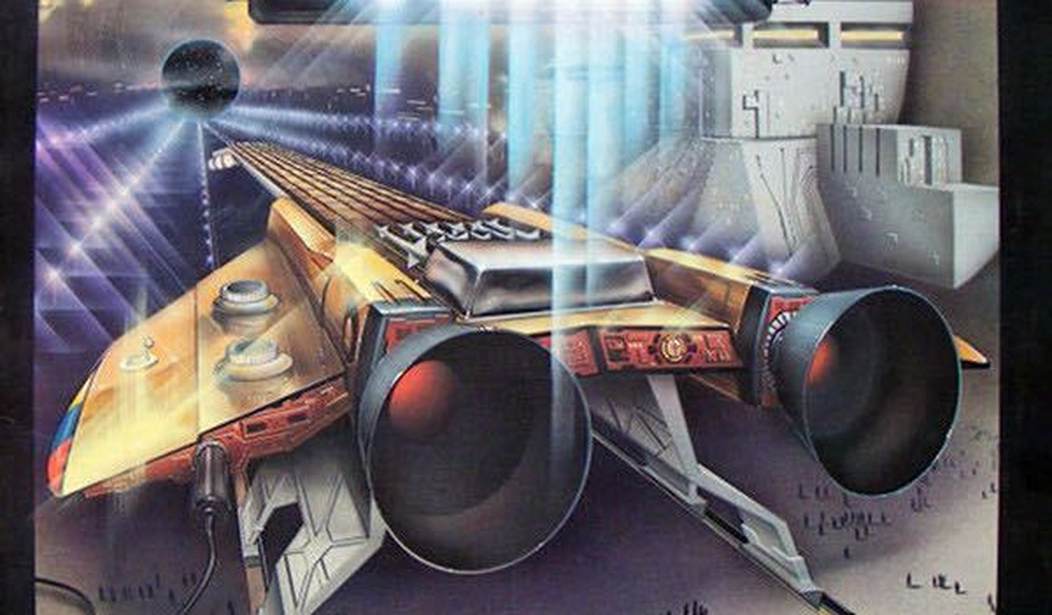Those of us who remember 1982 with affection for more than having a real President, although that is certainly a great place to start, might also recall it as a time when Christian rock was beginning to emerge from the shadows as something more than a novelty heralded by the few and at best ignored, if not actively opposed, by the church at large. While bands such as Daniel Amos and The 77s were carving out their claim as alt-rock heroes for the faithful, far more mainstream efforts were making inroads in the evangelical market. Leading the charge was Petra.
Petra had been in existence since the mid-1970s, releasing two scattershot albums before an almost complete personnel turnover left the band as not so much a band as an idea in the hands of guitarist Bob Hartman and vocalist Greg X. Volz, Volz having the sadly overlooked the “e” band on his resume. The two assembled a soft pop/rock album in 1979 entitled Washes Whiter Than, filled with radio-friendly tunes and a lyrical approach of Scripturally-woven core faith proclamations so soundly assembled even the crustiest anti-rock fundamentalist couldn’t pick them apart. 1981 saw Hartman and Volz take a deep breath and release Never Say Die, an album that started out with the gentle ballad “The Coloring Song.” There was a surprise in store for the listener settling back expecting more of the same, as starting with the album’s second track “Chameleon,” Petra broke out a carefully controlled arena rock sound that doubtless sent those expecting something far more subdued running for the exits. It wasn’t metal or alternative by any means, but within its genre (think Boston, Foreigner, Journey, Toto, etc) Petra had rediscovered its muscle.
Having re-established itself as a rock band, Petra kept things going in 1982 with More Power To Ya. Jonathan David Brown’s production was clean albeit somewhat thin-sounding, although whether this is due to his work or the wimpy mastering that was the bête noire of all Christian music during the 1980s is a matter of conjecture; one listen to the rich, textured sound he captured in 1976 on Daniel Amos’ Shotgun Angel indicates he wasn’t the culprit. The songs followed the same pattern as set on Never Say Die, the occasional radio-friendly ballad including the title track surrounded by arena-ready anthems that managed to not be overblown. Petra was a youth pastor’s answered prayer. The band rocked, but safely.
Girder Records has released a remastered version of More Power To Ya along with two other Petra titles: 1985’s keyboard-laden crossover attempt Beat The System and 1987’s lackluster This Means War — it being the second album with John Schlitt on lead vocal in place of Volz, who left the band after Beat The System due to disagreements with Hartman over the business side of things. While Schlitt was more than equal to the task of replacing Volz vocally, the loss of Volz as a songwriter put Petra into a creative decline that along with arena rock’s waning popularity saw the band’s fortunes gradually diminish from the mid-1990s until it more or less called it a day in 2005.
Back to More Power To Ya. The album has finally received a decent mastering job, the sound now having genuine punch and depth without being overly compressed. This brings out the fact long-suspected, but seldom presented: When it came to its genre, musically Petra genuinely stood toe to toe with its secular counterparts. The musicianship was solid albeit not virtuosic. Volz was a superb singer, seemingly effortlessly busting out soaring high notes not to show off, but rather to flesh out the songs.
Hartman and Volz’s songwriting was deceptively impressive. While a superficial listen indicates it was not much more than a foundation for the band’s aforementioned solidly Scriptural lyrics, closer attention revealed a fair amount of color and depth behind both the tunes and arrangements. This is best demonstrated on “Judas Kiss,” which cleverly starts with deliberate backmasking (remember that controversy?) stating, “Why are you looking for the devil for when you ought to be looking for the Lord?” before setting into a staccato guitar riff laid on top of snarling drums and keyboards. The album’s other standout tune is “Rose-Colored Stained Glass Windows,” whose superb hooks powered a withering observation of a church indifferent to the suffering outside its walls. Petra made no bones about being the rock band for churches who hated rock bands, but it didn’t always play nice.
There is a fair amount of nostalgia stirred when listening to More Power To Ya. It’s hard to imagine your average Arcade Fire fan getting into it, or much of anything else from the 1980s arena rock era. But, for those among us who believe that if it was good then it’s good now, the revitalized More Power To Ya is a welcome listen for those who enjoy a good tune behind the Good Book.













Join the conversation as a VIP Member